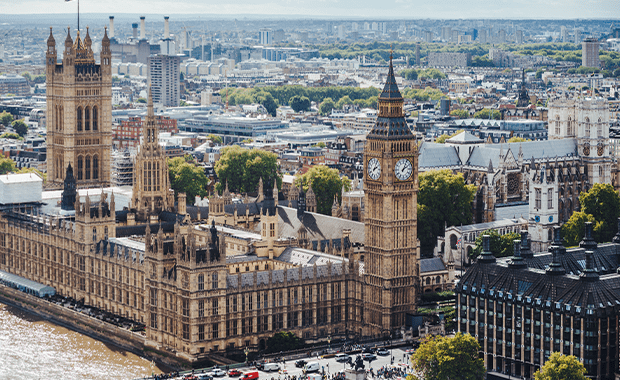GK Intern, Jed Shashu, reflects on the Shadow Health Secretary, Wes Streeting’s response at an Institute for Government event – on how to tackle the challenges facing the Health and Social Care sector.
At a time when Boris Johnson’s premiership is characterised by failing public trust and rising inflation, the Conservatives may well struggle to rebuild their brand in time for the next General Election. Recent opinion polls show greater support for the Labour party, and coupled with the upcoming by-elections and the results of the investigation by the Committee of Privileges, this could lead to Boris Johnson’s leadership becoming untenable. The Labour Party as the next ruling party is a serious possibility, therefore the shadow cabinet’s policy recommendations, proposals, and scrutiny of the current government’s actions gain increasing importance.
However, Labour are still struggling to reveal their key policies. One example is the Shadow Secretary of State for Health and Social Care, Wes Streeting who was recently speaking at an Institute for Government event. Although highly regarded in the role, Streeting did not offer clear policy proposals for the NHS or a pre-legislative proposal for the Health and Social Care sector. Streeting instead presented vague recommendations which offered a glimpse of Labour’s health policy and proposed solutions to tackle the current issues within the Health and Social Care sector, evolving around the mantra of both undisclosed reforms and resources which are needed to produce results.
One glimpse of a Labour policy to relieve pressure on the NHS came in the form of a previously announced National Care Service to provide free personal care for older people. Streeting said that this policy, which was first announced in September 2019, could be delivered within the first term of a Labour government. Additionally, he also argued his case for an effective workforce planning strategy, to tackle workforce shortages by investing in training for junior doctors to take on more frontline roles, increasing wages of the lowest paid in the sector, and greater investment in social care staff. However, while promoting these appealing policy proposals, he fell short of laying out any form of costs or targets that Labour would incur if in government.
These recommendations, if thought out, could certainly help tackle the biggest challenges facing the NHS and adult social care sector. Training junior doctors to have the skills take on more frontline roles could help ease the strain on our health service, while helping to clear the NHS backlog and the NHS staff shortages of 110,000. Increasing wages of the lowest paid in the sector can help those struggling to deal with the rise of the cost of living. The creation of a National Care Service and investing in social care staff could, if implemented correctly, help the structural issues within social care. Structural issues that have been worsened by the £4.6 billion cut to social care budgets and the impact of the pandemic. Recent estimates suggest 1.2 million older people’s needs are going unmet, this would mean the older generation who are not receiving adequate care can receive the support they need.
Discussing the necessary funds, Streeting attacked a recent statement by Sajid Javid, the Secretary of State for Health and Social Care, who said that the NHS does not require more funding. The Shadow Health Secretary argued the government’s underfunding of the country’s health and social care sector needs to be resolved by greater investment from the Treasury to address the underlying problems the pandemic uncovered and a structural reform of the NHS. Streeting indicated he will continue to stress to Her Majesty’s Treasury that investment in Health and Social Care is vital not only for public health but can boost the UK’s economy in the long term. However, throughout the event, he maintained a certain vagueness when speaking about the necessary funds and structural reforms, missing a clear chance to take advantage of the Conservative government’s tarnished image.
Streeting said that one solution comes in the form of the life sciences sector, which he said is “critical” in aiding the NHS perform at its best. He argued that this can be achieved by investing more in the sector; as this can lead to new medicines, treatments, and technology, which in return would ensure more patients receive effective pre-emptive treatments – this is necessary to help tackle the country’s greatest health issues including cancer, obesity, and ageing.
On the future of health, Streeting said it was critical to learn the lessons from the pandemic and build up resilience to minimise the effects of a new pandemic. He believes scaling up of vaccination rollouts, the implementation of “germ games” and an annual report presented to parliament as part of regular pandemic planning are key lessons to adapt and minimise the effects of future pandemics.
The Institute for Government event did not offer clear policy proposals, and Labour will have to solidify a policy base on which it will run in the next General Election. Labour’s lack of potential proposals could be the opposition party awaiting another Conservative blunder to deliver a coup de grace, but the public will undoubtedly expect more from any ministers of a potential cabinet.
What the event did highlight was Wes Streeting’s effective communication skills, quickness, and boldness that as Labour leader, the party could win back the decisive ‘Red Wall’ constituencies. Streeting may have distanced himself from replacing Keir Starmer, but his vision for the Health and Social Care sector shows qualities that are necessary not only for a future Secretary of State but a potential Prime Minister.






